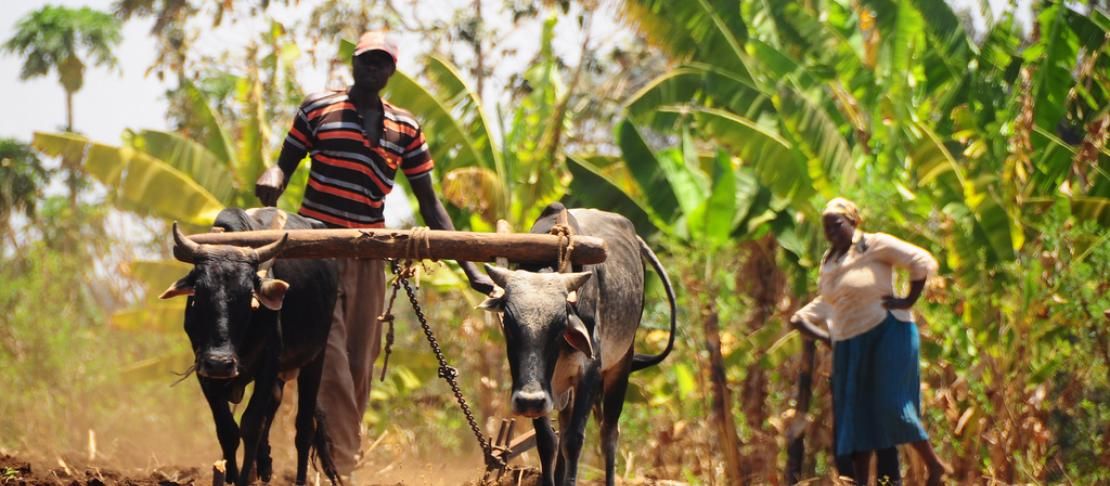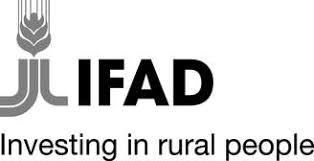
Climate-smart agriculture (CSA) is at the heart of transformational change in agriculture.
Pursuing CSA helps developing countries increase agricultural productivity and enhance their resilience to climate change and extreme events - all the while fostering low emissions development where possible.
CSA provides these countries with viable options for delivering on their intended Nationally Determined Contributions (NDCs) and the UN Sustainable Development Goals (SDGs).
Major climate finance funds are aligned to the principles of CSA now more than ever, as a means of delivering sustained climate adaptation and mitigation in the agricultural sector.
The goal of this project is to build livelihoods and improve resilience to climate change of smallholder farmers of East Africa (Tanzania, Kenya and Ethiopia) and West Africa (Mali, Senegal, Niger and Ghana) through the large-scale adoption of CSA technologies and practices.
This project tackles many of the issues central to IFAD's strategy - driving transformation in agriculture and tackling the root causes of climate change, youth unemployment, gender inequality and shortfalls in nutrition around the world.
This EU-IFAD project looks at value chains and how we can enhance market access for women and young people through innovative methods (such as digital agriculture) and the examination of CSA technology and practices through a gender lens.
Led by CCAFS' Climate-Smart Technologies and Practices Flagship, the project has two main objectives:
- Gain new knowledge on scalable CSA technologies and the options available for institutions. This new knowledge must show demonstrable benefits to farmers (including women farmers) and young people, with positive impact on employment, climate resilience and low emissions development.
- Engage ongoing initiatives to help prioritize the 'best bet' policy options
The primary target group for this project is 400,000 poorer smallholder farmers (particularly women) who face the twin challenge of food insecurity and climate change.
Through our projects and partners, the target groups will receive incentives to adopt CSA practices and technologies.
Other target groups include development agencies who work all the way from with grassroots through to national programs. The project also supports local and regional institutions that lead agricultural planning, as well as private sector companies that can scale up CSA solutions.
Activities
- Identification of CSA options for the rehabilitation of degraded landscapes and ecosystems, and the enhancement of farmer resilience
- Assessment of CSA options in Climate-Smart Villages (CSVs)
Please contact Dawit Solomon for more information.
- Analysis of climate-smart crop value chains
- Mainstreaming of evidence-based CSA options within the selected value chains
Please contact Robert Zougmoré for more information.
- Building capacity for innovative public-private joint venture
- Improving the relevance and penetration of financial (protection) and agricultural advisory services
Please contact Pierre C. Sibiry Traore for more information.
Output 4: Five best-fit investment options for programs and policies in East and West Africa
- Identification of climate-smart business models and finance mechanisms
- Scaling up the use of evidence in projects, policies and with the private sector
Please contact Todd Rosenstock for more information.
Explore our projects
Video: Ethiopia - Where agricultural transformation is happening at the grassroots level
Flyers:
Blog:
Climate-Smart Villages give farmers options for a climate-smart future
How inclusive partnerships tackle climate challenges in East & West Africa
Photo albums:
Partners
- International Center for Tropical Agriculture (CIAT)
- Institut de l'Environnement et de Recherches Agricoles (INERA)
- L'Institut National de la Recherche Agronomique du Niger (INRA)
- Institut Senegalais de Recherche Agricole (ISRA)
- Savannah Agricultural Research Institute (SARI)
- Agrhymet Regional Centre
- Rainforest Alliance
- Root Capital
- World Business Council for Sustainable Development (WBCSD)
- Sustainable Agriculture Initiative Platform (SAI-Platform)
Funder
Funding for the research work in this report was provided by the European Union, part of European Commission support to Agricultural Research for Development (AR4D). The funds are administered by the International Fund for Agricultural Development (IFAD) while the project is implemented by the Alliance Bioversity-CIAT.

